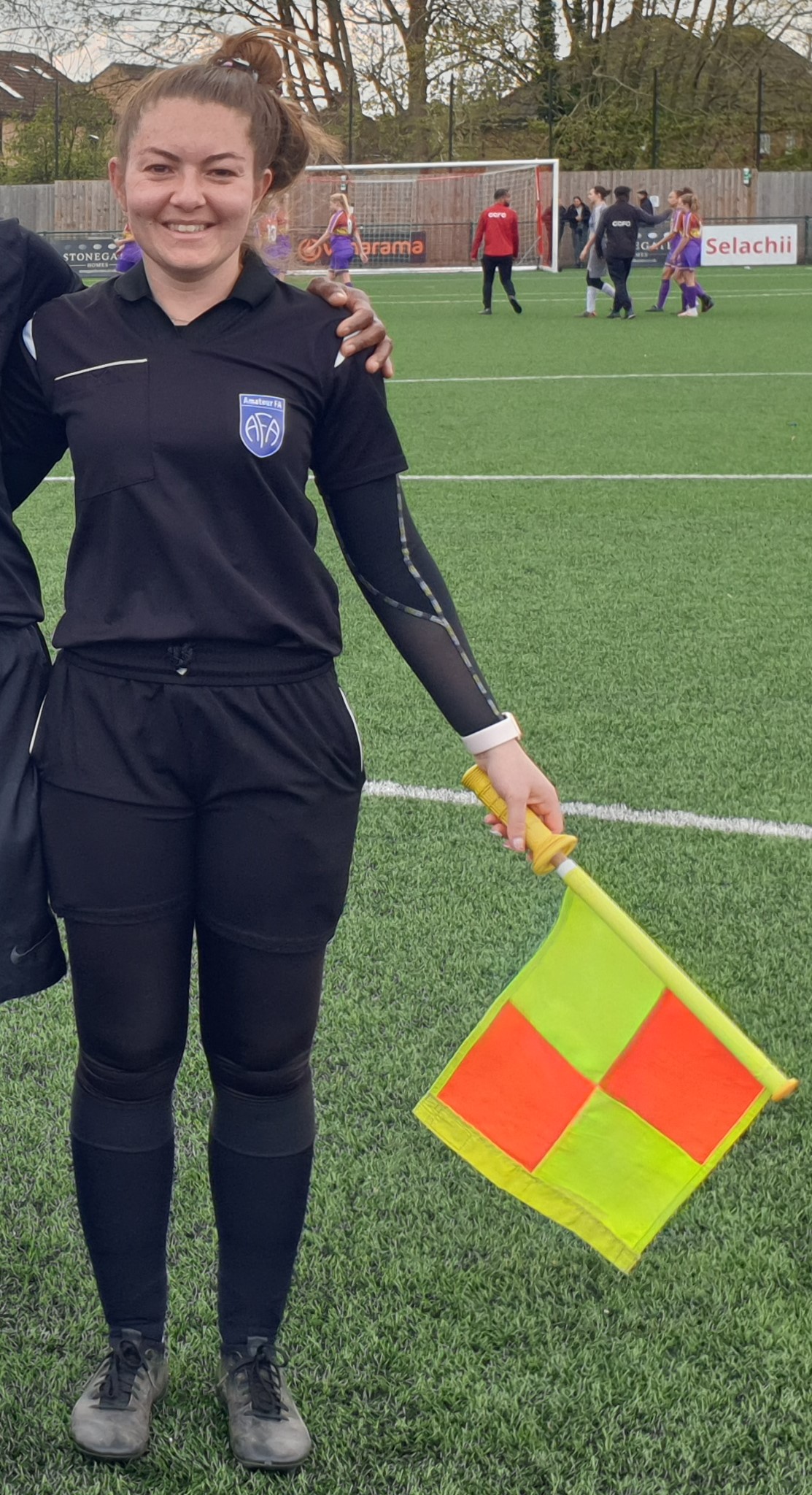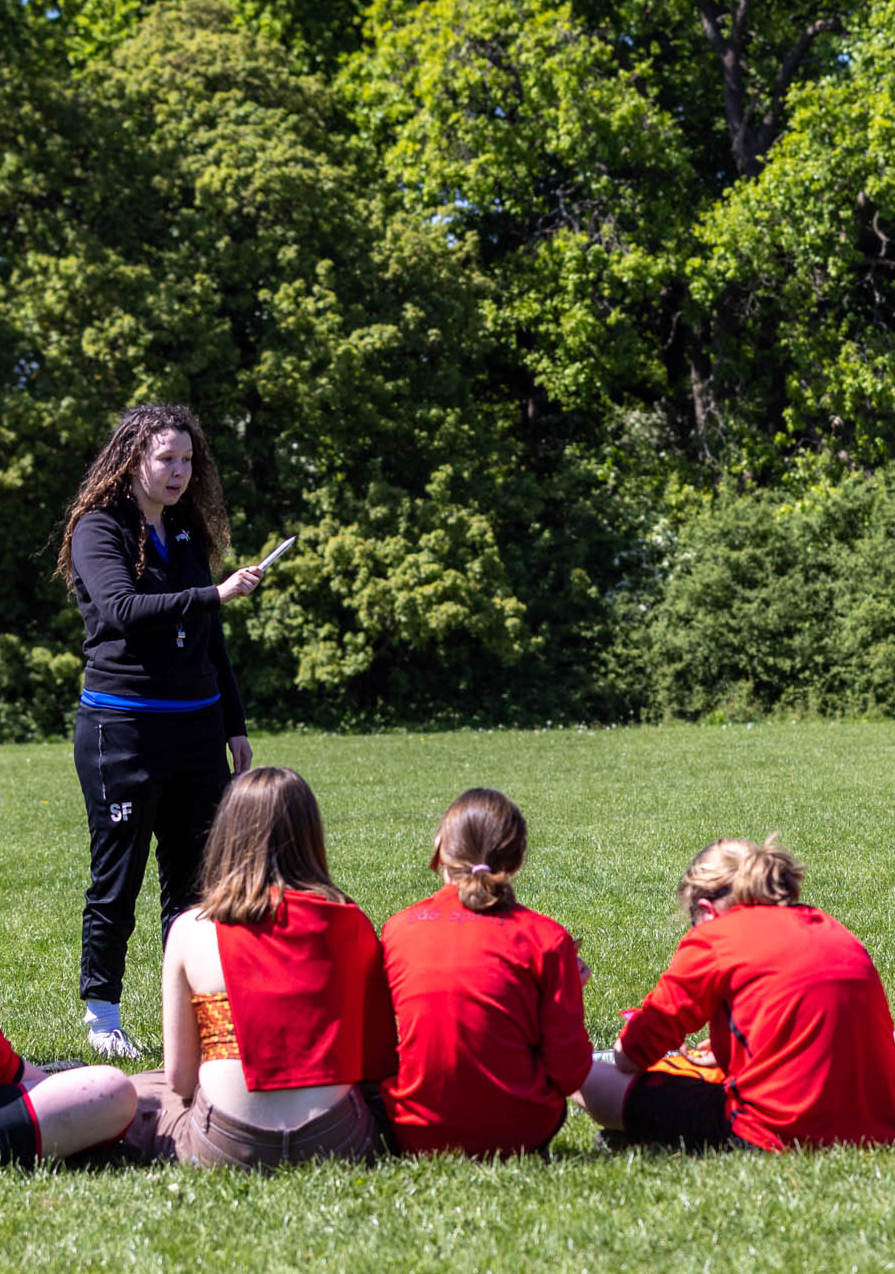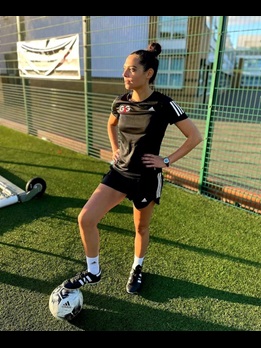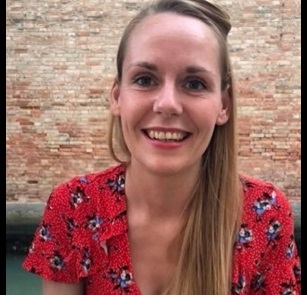
Women's Euro 2022: Making an Impact
As the Women's Euro 2022 kicks off on 6th July, we spoke to females within Amateur FA and the wider football community to hear their stories, what football means to them and what impact they think the WEuro's will have on football in England.
Olivia Brownlee
Olivia has involved with football since she was six years old. She began refereeing at 15 years old, and refereed on and off over the last 13 years, having refereed and lead official teams in grand finals, exhibition matches and league and cup matches.
Olivia left Australia with a wish to referee around the world at all levels. She has continued to referee in England, and in her first season refereeing here, was the Assistant Referee on the Capital Women's Intermediate Cup Final.
Why did you become a referee?
I became a referee at 15 years old. I became a referee because I was playing at the time and it was also a way for me to earn a little bit of extra pocket money as well as a way to give back to the community.
What are the main differences between refereeing in Australia and England?
There are very few differences between refereeing in Australia and England. The laws for the game are the same around the world, and therefore easy for everyone to understand and to ensure the game is played equally and fairly. The only difference I think is that it is so much harder to referee in the winter here in England because it is so much colder!!
What has been your favourite refereeing experience?
My favourite refereeing experience would definitely have to be when I refereed the Macarthur City vs Country ladies exhibition match during a showcased Women in Football weekend. I had been selected to referee the match after returning to refereeing after a 6 year break.
What is the best thing about being a referee?
The best thing about being a referee is being able to give back to the community. I have played and been a part of soccer since I was 6 years old, coaching, playing and refereeing and I think that refereeing has given me the most satisfaction. I have been able to give back to the community as well as develop strong ties and develop some great friendships.
What has been the toughest moment in your refereeing journey?
I have had two toughest moments in moments in my refereeing career, number 1 is feeling unsupported by some of the committee members of my former association in Australia. The second toughest moment was moving to England hand having to start my referee journey all over again.
What has being a referee given you?
Being a referee has given me a new respect and understanding of the game. It has given me so many opportunities to connect with coaches and players and other referees. I have had incredible opportunities from becoming a referee, including being a part of all female refereeing days and teams.
Do you see yourself as a role model for others who are looking to get into refereeing?
Yes, I do see myself as a role model. I have been a referee from a young age when there weren't very many female referees involved in the game, and I have had girls tell me they are a referee because they have seen me referee or I have refereed their games. I want to inspire young girls and women to get involved in refereeing at all levels, and there has never been a better time for women and girls to be involved in soccer as it is one of the fastest growing women's games in the world.
What are your three tips for being a referee?
1. Always be cool, calm and confident in your refereeing abilities
2. Take pride in what you do and always believe in yourself
3. Never let anyone tell you that you aren't good enough and don't sweat the little things
If you could tell players, officials and spectators one thing, what would it be?
All your officials are human too. They are real people and they make mistakes, but they try their best to get everything they can right. They are trying their best to make all the right calls. Please don't be too harsh or quick to anger. While players play for the love of the game, we as referees and officials also officiate for the love of the game. While a referee may not have their best game every game, please always say thank you for their commitment after the game.
Steph Fairbairn
Steph took her first steps into coaching with 100FC, a fully funded programme for female coaches, doing her placement with Dalmain Athletic Girls FC in South East London.
Steph is now Head Coach at at the club, where she manages the U13 team. An FA Level 1 qualified coach, she also runs a number of school clubs, and took the Lewisham team to the London Youth Games in 2021. Originally from Newcastle, she most recently played for Tower Hamlets Women's FC.
How did you get into coaching?
I got into coaching almost three years ago through the 100FC programme. I was looking for a few things: to make a better connection with my local community, to work with children, and to develop my technical understanding of football to help with my sports writing. I found out about the 100FC programme, applied, and began my coaching journey!
How have you found the transition from player to coach? What top tips would you give to a player looking to get into coaching?
For me, playing and coaching are two completely different things with different tasks and different challenges. The rush I get from them is the same, though. Sometimes I do catch myself missing playing and want to run onto the pitch during a game! I feel like coaching is my place - I think I'm a better coach than I was a player! My top tips would be:
- Really think about the coach you want to be - use all of your good and bad experiences in the game to spur you on
- Observe coaches you work with - think about what they do well, what they could do better and what you can take from them
- Any time you see a session delivered, write it down! You never know when you need coaching ideas
- Reach out to coaches - coaching can be difficult at times, and having people to speak to is vital
- Get ready to leave your ego at the door - often you have to put it aside for the good of the team you're coaching, particularly if it's a youth team
What is the best thing about being a coach?
The players you get to work with! Every week I look forward to going to training and seeing all of the girls that I coach - to watch them develop as players and people is the best feeling. They teach me so much too.
What has been the toughest moment in your coaching journey?
A player left the club after my first year of coaching and I thought it was my fault. I hated the idea that maybe I could have done more to keep someone in the game. After a while, and talking to a few people, I realised that it wasn't my fault at all. I learnt a lot from the experience about how to handle tricky situations with players and parents.
What has being a coach given you?
So much! Sometimes a few headaches, but more often than not, the best day of my week.
Ali Speechly
Ali started playing for Clapham Kicks and in 2014 completed her FA Level 1 Coaching Course, which started a change in direction in her footballing journey and has recently seen her complete her UEFA B licence and be part of the FA Coach Mentee Programme.
Ali currently coaches at Goals 4 Girls and a girls academy. Ali also sits on the Board at Camden and Islington United, as their Director of Women's Football.
Why did you become a coach?
I felt like I could make a difference as a coach and be the role model I never had when I was younger. I’ve loved football my whole life but when I was little I was told I wasn’t allowed to play because I was a girl, so I didn’t play organised football until I was 30 and started playing Sunday League. I got offered a free place on the FA Level 1 course and I really enjoyed it, so I started coaching in 2014 and haven’t looked back!
What has been your favourite coaching experience?
In 2019 I coached in Spain for 2 weeks at a children’s summer camp. It was an amazing experience to coach boys and girls from another country and help them with their English as well as meet some brilliant coaches and people. Coaching in a foreign country really helped me to simplify my coaching and get creative with my communication skills.
What is the best thing about being a coach?
Developing talent and inspiring a life-long love for the sport – especially in females. I love empowering girls and women to take up space in football – on and off the pitch. The confidence we gain through football extends into other parts of our lives and it’s always wonderful to hear from players who I’ve coached in the past and learn about how they have used their experiences playing football to create better futures for themselves.
What has been the toughest moment in your coaching journey?
Completing my UEFA B licence was a long process for various reasons – including the pandemic – and it was a big test of character. I worked really hard and I’m so proud of myself for coming through it. I am definitely tougher than I look!
What has being a coach given you?
An education! Every time I coach, I learn. In particular, coaching has really helped me to develop my communication skills – especially my active listening skills. Coaching has also boosted my confidence in myself and my ability to develop people, including myself.
Do you see yourself as a role model for others who are looking to get into coaching?
Yes. As a coach I have done a lot in a short space of time and I think others can learn from my experiences. If anyone is interested in talking to me or has any questions for me then I encourage them to get in contact with me via my social channels.
What are your top three tips for being a coach?
My approach to coaching is built around three key principles: engage, educate, empower. So my tips for being a coach would be:
1. Engage – smile at your players when they arrive! Talk to them about them – as people, not just footballers. Communicate with them authentically in a way that makes sense to them and is also true to who you are as a person. Be aware of your body language and tone of voice and the impact these can have on others.
2. Educate – teach your players but also learn from them and your peers. Coaching isn’t about showing off what you know, it’s about communicating that knowledge to others and being honest about what you don’t know and then filling those gaps.
3. Empower – it is essential to create physically and psychologically safe environments for players to try, fail and learn in. Empowering players to trust in their ability to get it right means we have to help them feel confident to try again when they get it wrong.
If you could tell players, officials and spectators one thing, what would it be?
Football is a game – enjoy it!
Charlotte Lawrence
Charlotte is the Strategy & Performance Manager within the Grassroots Division at The FA.
Charlotte is also the Chair of the Amateur FA IAG and is a passionate advocate for equality and inclusion. She hopes to use her role in the group to support the Amateur FA’s efforts in delivering football for all.
Charlotte has a huge passion for football and the important role it can play in delivering social good. She is a FA Level 1 coach and a regular player.
(1) How long have you been playing football? Did you play in a club or at school growing up?
I have been playing football for as long as I can remember. My dad started taking me to Highbury when I was ten which is when my passion for watching football kicked in, but I always remember being happiest with a ball at my feet. I played as much as I could at school and was one of two girls who played on our primary school team, I had a fantastic teacher who really encouraged us and ensured it was an inclusive and fun environment. I would have loved to be part of a more formal club setting but there weren’t many local clubs for girls in the area when I was growing up. It is wonderful to see how many more opportunities there are now for girls to play.
(2) What attributes and qualities do you think you have been able to develop through playing that have also proven successful in your line of work?
There are so many! Football has boosted my confidence, shown me what it means to be a team player, given me the resilience to keep going when things aren’t going well and has taught me a number of lessons about how to be a leader, which I have taken into my work career. The thing I love about football, especially when coaching is that when people cross the white line they can become so much more confident and assured. Football is also massively important for physical and mental health – and looking after yourself properly is one of the best things you can do to make sure you are being the most productive and happiest version of yourself.
(3) What advice would you give to those looking to get involved in football as a career (outside of playing, coaching and refereeing)?
Before I joined The FA I had no idea about the breadth of different roles available in football. I think many people assume that if you aren’t a coach, a referee, physio or match official that there aren’t any opportunities to work in football. My biggest bit of advice would be to reach out to those who work in the industry, find out more about what roles are available and what is the best fit for the skills you have to offer. My other big bit of advice, especially to women and those in other under-represented groups in the football industry, would be to just apply! It is great to see things moving in the right direction but there is still more to do to ensure we have a truly representative workforce.
(4) What has been a highlight for you through your involvement in football?
I feel immensely grateful to all that football has given me. I have met my wife and best friends through football, landed my dream job at The FA and had some wonderful experiences playing across Europe in social tournaments with friends. I also had a hugely proud moment recently watching my six year old niece be a mascot at the Finalissima match between Argentina and Italy; to watch her walk out confidently and happy at a packed Wembley stadium was just amazing.
(5) Football has a lot to offer off the pitch. How important do you think this?
It is an old adage, but a true one that football is so much more than just a game. Yes, the on pitch competition is hugely important and exciting at all levels, but football is so much more than that. It can do amazing social good and bring communities together. It has been inspirational to see what Marcus Rashford has done with his work on school meals, or Alex Scott and her work with Unicef and how football has helped to settle Afghan refugees. I don’t think we can underestimate the power of football to do good.
(6) What impact do you think the Women’s Euros will have on the growth of football in England?
I am so excited for the tournament, not only because I think we have a fantastic squad that is genuinely capable of going all the way, but more so for the impact it will have on the next generation of girls who are inspired to get into football. I feel like we are in for an amazing summer of football and I cant wait to get started!





